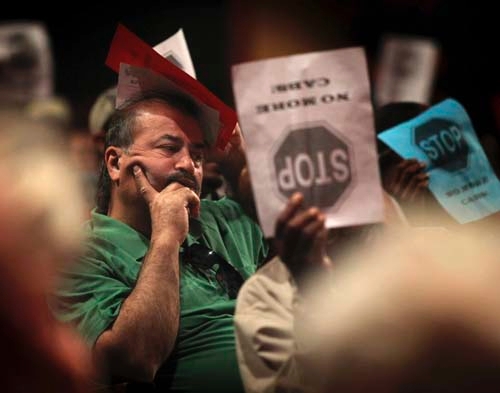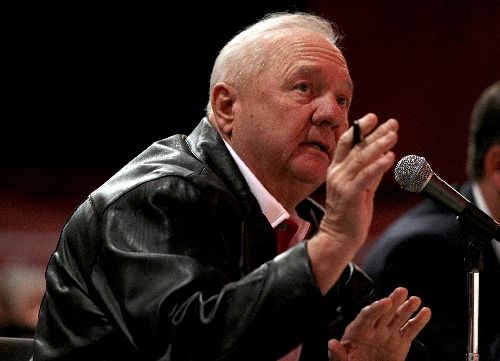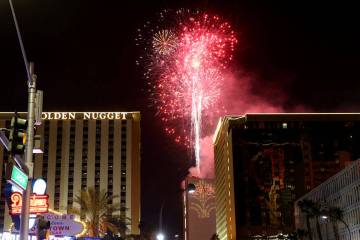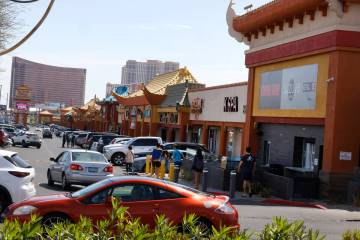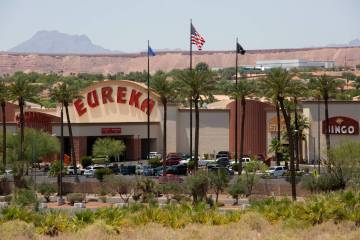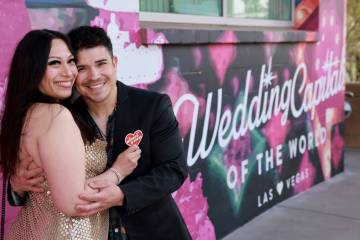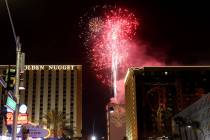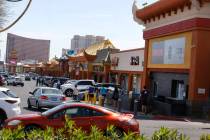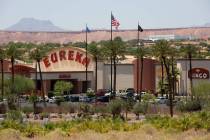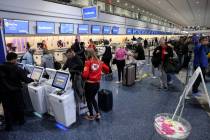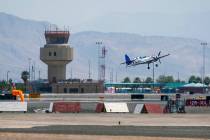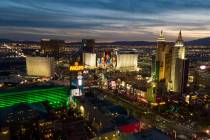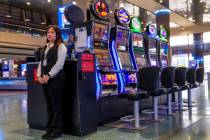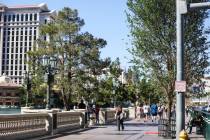Authority rejects cab companies’ bid for temporary permits
With more than 200 drivers waving "No more cabs!" signs on red, white and blue paper, the Nevada Taxicab Authority on Monday rejected several companies' requests for temporary permits to cover a major event -- the second such rejection in recent weeks.
This time, the companies had proposed that they each be allowed to field six to 12 extra cabs, depending on the time of day, during the National Association of Broadcasters convention that will start Saturday . Among the 16 companies licensed to provide taxi service, only Yellow-Checker-Star broke industry ranks by advocating no extra medallions.
According to the latest estimates, attendance at the four-day conference that highlights broadcast equipment and trends will top 100,000, making it one of the largest events that Sin City hosts.
But the medallion request died on a 2-2 tie vote with four commissioners present. The swing vote, Joshua Miller, left the meeting at the Cashman Center midway to attend a previously scheduled appointment, Chairwoman Ileana Drobkin said.
The debate broke along two increasingly familiar lines: drivers complaining that new permanent medallions and longer hours on some awarded last year have severely diluted their incomes, and companies telling of venues pleading for more cabs during busy times.
However, this session did not erupt with the raw emotion seen in February, when other temporary medallion requests were on the agenda and security officers had to escort some angry drivers from the meeting room. Then, the board rejected one and approved a scaled-down version of the other.
This time, everyone had to pass through security screening for metal objects, a first for the normally low-profile state agency. Audience members also received several warnings, both in writing and from uniformed security officers, against the kind of disruptions that took place in February.
"I am a little disappointed at the outcome, but we will do the best we can to respond to calls from the properties and the airport begging for taxicabs," John Hickman, chief operating officer of Frias Transportation Management, the city's largest operator with five brands, said after the vote. "Having the additional cabs would have helped."
But Yellow-Checker-Star Chief Operating Officer Bill Shranko called the decision "an excellent step in retaining drivers. The industry has a lot of work to do in this area."
Previously, he had testified that his company had a 60 percent annual turnover rate and estimates that some of his competitors ran at more than 100 percent.
"I know we can handle this convention so easily (with current medallions) and put a few bucks in the drivers' pockets," he added.
But Drobkin, in supporting half of the temporary medallions that the other companies requested, talked about the effect on the critical meeting industry.
"I have a real concern with the bigger shows, and not being able to service them," she said.
Drivers recounted long lines outside the casinos or told of having to circle McCarran International Airport several times because there are many more cabs on the street then potential passengers during slower times.
"All these extra cabs are not needed, none of them," said George Allen, a driver for Yellow-Checker-Star. "Go to any taxi stand at 3 a.m., 6 a.m., 9 a.m., noon, and see how long the lines are."
Decorum had deteriorated in the process, several others said, as drivers have taken to cutting in front of each other to get closer to the head of a line. The number of passengers a driver carries during a 12-hour shift is critical because they work on revenue-sharing formulas, not hourly wages, that vary from company to company.
Contact reporter Tim O'Reiley at
toreiley@reviewjournal.com or 702-387-5290.



